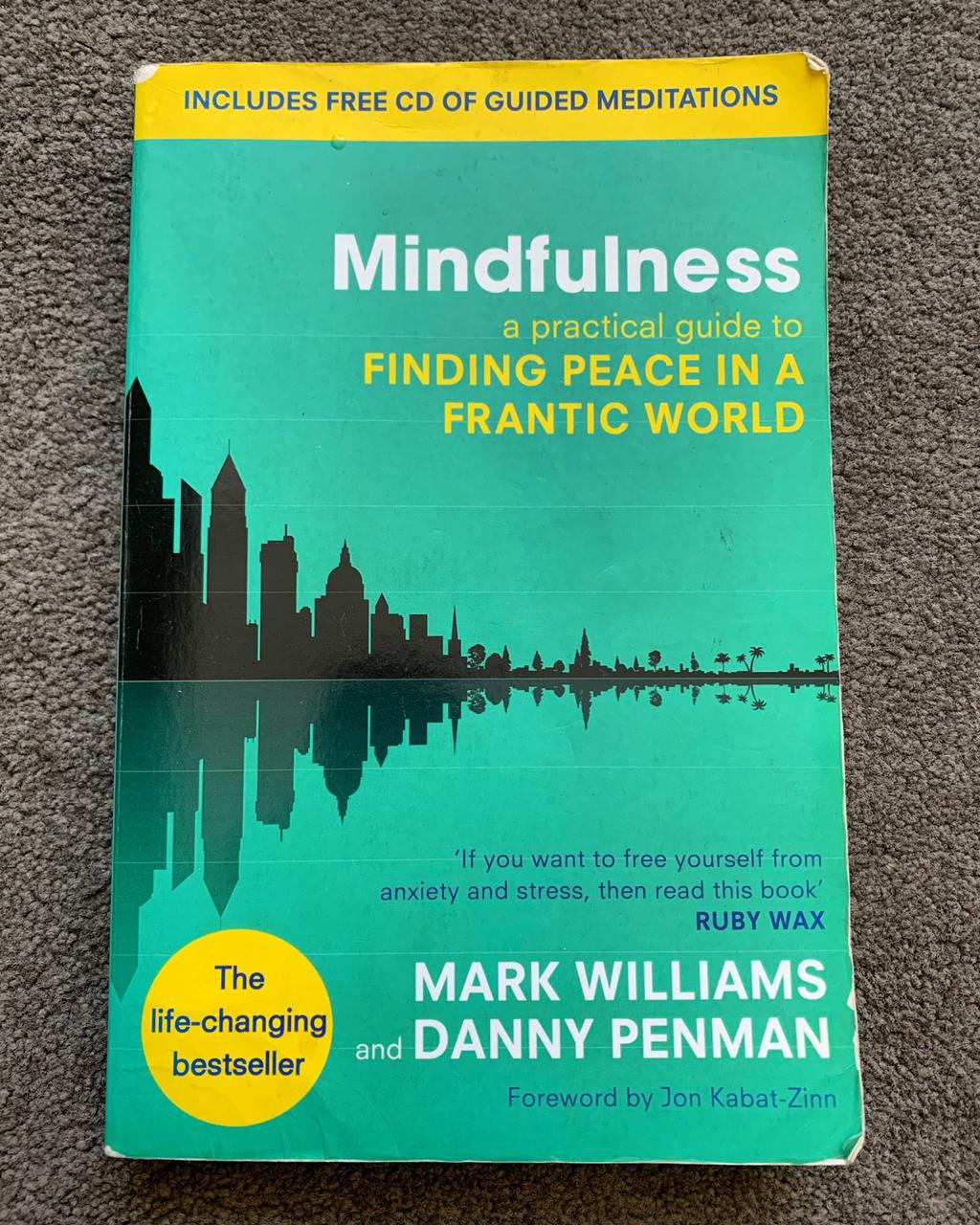
We’ve all heard these words a million times, but what do they actually mean? Is meditation just for Buddhists, hippies and yogis? Why is mindfulness important and how does a person implement it in their lives?
I first started asking these questions about 4 years ago after going through a particularly stressful time in my life and developing neck and jaw pain. I was wondering if there was something I could do to help me deal with this stress. At the time, we had a wonderful psychologist working in our practice and I asked her about meditation and whether it was something that she encouraged her patients to do. I had heard about many different forms of meditation and was looking for a way to try it out for myself.
She recommended this book: Mindfulness; a practical guide to finding peace in a frantic world. ‘Mindfulness’ is based on mindfulness-based cognitive therapy (MBCT). It is an 8 week programme with a CD of 8 guided meditations, 1 for every week. I now recommend this book to many of my patients. It clearly explains what, why and how, as well as all of the research behind MBCT – a technique that has been proven to be as effective as drugs for preventing depression.
Mindfulness meditations are simple practices that are done daily to help a person break the cycle of anxiety, stress, unhappiness and exhaustion. I see people every day who tell me that they feel ‘stuck in their heads’ – something that most of us can relate to (especially after a year like this one). Most of us want to feel less anxious, less angry, less irritable and calmer, but just don’t know how to do it.
For me personally, the most profound realisation that I had while doing this programme was that we are not our thoughts. Our thoughts come and go and we have the ability to decide whether we want to observe them or engage with them. Often when we engage with a negative thought, we get sucked in and go down the same mental rabbit hole that we have been down countless times. But it is possible to watch these negative thoughts from a distance and wait for them to pass, because they do pass. Thoughts and feelings (positive and negative ones) are transient. Through practice, a person can learn to identify a negative thought pattern before it sucks you in, and choose to watch it with friendly curiosity until it passes.
The key here is practice. Daily practice.
The reason that I, as a physio, recommend meditation is because stress and anxiety can manifest as or contribute towards physical ailments in the body (common manifestations that I see include neck and shoulder pain, jaw problems, lower back pain and migraines). Cortisol (the stress hormone) has been shown to delay healing in the body after an injury and healing is actually not possible when the body is in a state of fight or flight (again, something that has been especially prevalent during this year). For example, if you were being chased by a lion you would not stop to sleep and rest, to digest your food or to heal.
Our bodies cannot distinguish between different amounts of stress. In other words, our bodies see all stress as it would if we were being chased by a lion. It is a predatory response to keep us safe. It could be a deadline, being cut off in traffic or even just a deeply negative thoughts – it all feels like we need to run for our lives.
Meditation is a practice. It is like brushing your teeth. I would certainly say that our minds are more important than our teeth, so why would we brush our teeth twice a day but do not clear our minds regularly?
If you’re looking for a way to close off this difficult year and start 2021 with a fresh perspective, I would HIGHLY recommend this book.

